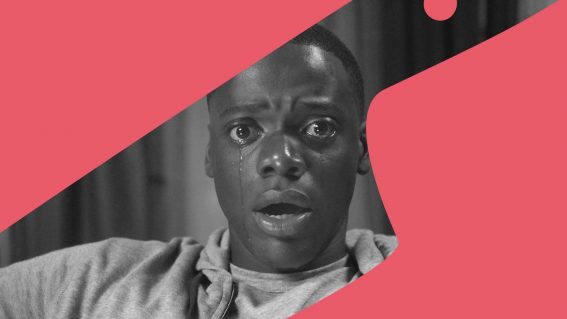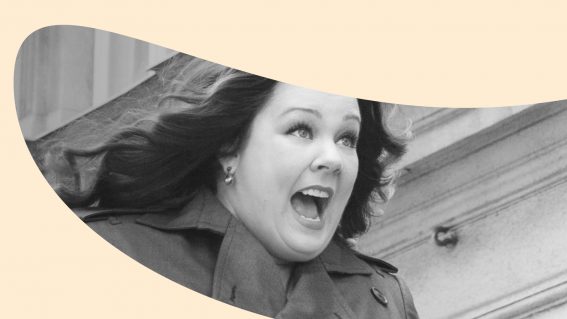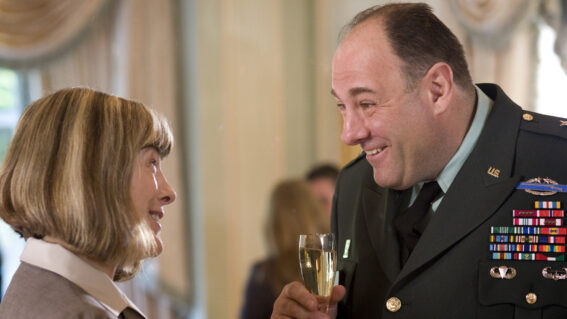Coulda Been Contenders: A Boxing Movie Checklist

Boxing movies, by design, are some of the dramatically predictable movies around. They tend to follow the same narrative arcs, drumming up conflict through rivalries, hardships, physical trauma, mentor/protege relationships and crime elements such as match-fixing. Unlike the martial arts genre, which has the benefit of varying fight styles and applying itself to other non-tournament-based scenarios, a boxing movie will almost always end with two sets of fists duking it out in the ring. That said, all these limitations do actually make the genre somewhat endearing to me. I just can’t resist an underdog boxing his way to the top, over and over and over again. To mark the forthcoming release of the Jake Gyllenhaal bash-fest Southpaw, here are five boxing flicks that might have slipped your radar and definitely should be better known (I’ve gone for “pure” boxing, so no MMA stuff included):
CHAMPION

The ‘40s produced at least three similar noir-inflected boxing movies: Body and Soul, The Set-Up, and my personal favourite, Champion. Starring the then-rising Kirk Douglas in a powerful, breakthrough Oscar-nominated performance, this 1949 Stanley Kramer production is a classic rags-to-riches tale, charting the ascent of an impoverished drifter named Midge Kelly to prizefighting star. In the process, he screws everyone around him, including his gimp-legged brother (Arthur Kennedy), former manager (Paul Stewart) and three (!) prospective love interests (Ruth Roman, Marilyn Maxwell, Lola Albright). The boxing scenes might not pack as hefty a punch anymore, but the film’s real power comes from its cautionary, uncompromising depiction of a soul tragically consumed by money and fame. The scene where Douglas reveals his true greedy nature to Albright is quite horrifying to watch. Expertly directed by Val Lewton vet Mark Robson, with ace cinematography by Franz Planer, who bathes the film in an patina of fatalistic, German-expressionist gloom.
STREETS OF GOLD
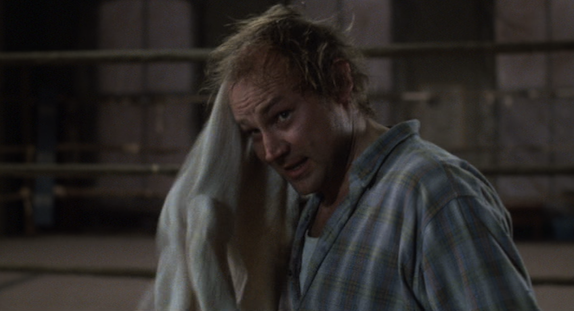
Here’s a boxing pic that probably no one remembers. Okay, Streets of Gold (1986) is no life-changing classic; it was the first directorial effort for producer Joe Roth, who went on to do by-the-numbers pablum like Revenge of the Nerds II and Christmas with the Kranks. But it’s a modest and very likeable movie, driven by Austrian actor Klaus Maria Brandauer’s terrific, magnetic turn as Alek Neuman, an ex-Soviet boxing legend who’s now washing dishes in Brooklyn when he’s not coaching a pair of brash, hot-headed amateur boxers (Adrian Pasdar, Wesley Snipes).
The film doesn’t give the latter two enough room to develop their relationship, which goes from hostile enemies to training buddies far too quickly. But Streets of Gold is still one of the more enjoyable entries from the sub-Rocky pile, distinguishing itself whenever it spends time with Neuman’s Russian immigrant community. Great uplifting synth score by Jack Nitzsche.
KIDS RETURN
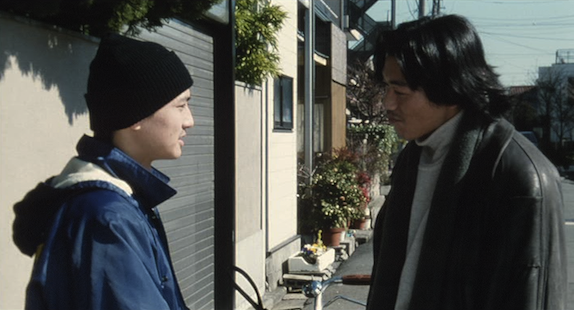
Kids Return (1996) doesn’t seem to get as much attention as Takeshi Kitano’s other works like Sonatine and Hana-Bi, but there’s no reason why it shouldn’t — it’s a real gem. The first film he made after his near-fatal motorcycle accident, it’s a beautiful coming-of-age story that marries boxing and yakuza genres, although there’s visibly more focus on the boxing side. Masanobu Ando and Ken Kaneko play two high school pranksters who end up forging different career paths: one as a boxer, the other as a gangster.
Kids Return might be of interest to boxing movie fans because of Kitano’s deadpan, stripped-down approach, which results in a film that doesn’t feel quite like any other in the genre. He allows those static wide shots play out in longer takes than normal, and while viewers seeking fist-pumping excitement may not be served well, his style manages to convey the gripping experience of being in the ring. A boxer’s journey packaged in a nostalgic, rueful, ambling look at the pressures and disappointments of impending adulthood.
DIGGSTOWN
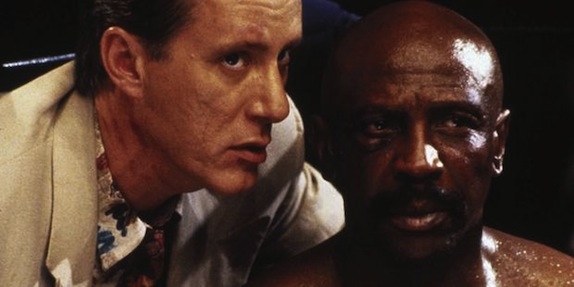
James Woods at his wheelin’-and-dealin’ oily best as a conman. Louis Gossett Jr. completely badass as an over-the-hill boxer brought out of retirement. Bruce Dern being an utter no-good scumbag. An awesome twist ending. There’s little not to love about Michael Ritchie’s Diggstown (1992), maybe one of the most under-appreciated movies of the ‘90s. Part caper, part boxing flick, this fast-paced, rousing film hinges on a ridiculous scam: a 48-year-old boxer taking on 10 younger contenders in a span of 24 hours.
Ritchie balances a lightly comic touch and pulp grittiness that’s not always easy to pull off; there are some moments when small-town bigotry rears its ugly head to surprisingly nasty consequences. Solid fun watching Woods and Dern trying to outsmart each other, and of course, Gossett Jr. pummeling a bunch of dudes. If not for the way Heather Graham’s character vanishes without a trace in the last third, Diggstown would be a knockout.
HOMEBOY
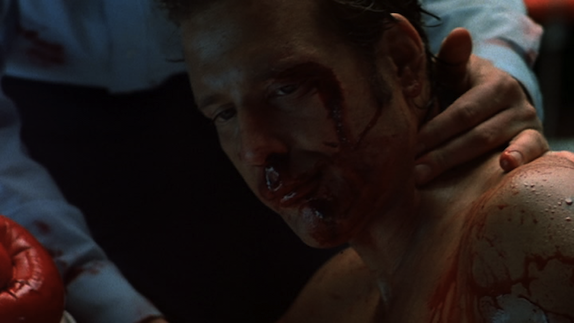
Revisiting Homeboy (1988) today, it’s revealing to see how much it has informed Mickey Rourke’s comeback role in The Wrestler. Penned by Rourke — a boxing enthusiast — under the pseudonym “Eddie Cook”, this atmospheric downer captures Fat City’s broken-down milieu more than any other boxing film. Rourke’s stardom was on the decline by the time this came out, and his role as Johnny Walker, a shy, slow-witted misfit who’s too old to be boxing, plays to that faded, bruised aura wonderfully. Christopher Walken is typically excellent as a flamboyant, bright-suited promoter who befriends Walker in the hopes of employing him in a heist subplot that’s a little silly.
Occasionally, Homeboy, with its melancholy Eric Clapton/Michael Kamen score, evokes a lost Walter Hill/Ry Cooder collaboration — and that’s a good thing. A one-film wonder from Wellington-born cinematographer Michael Seresin (Sleeping Dogs, Dawn of the Planet of the Apes).



